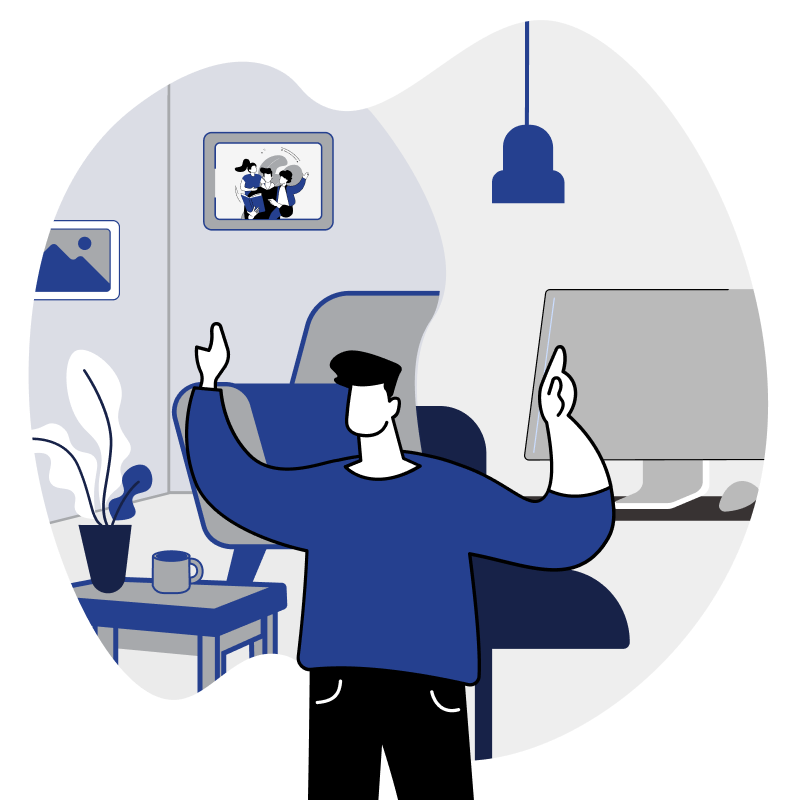by Scott Arney
Chief Executive Officer
National Police Federal Credit Union
The discussion around work/life balance has been around for a long time, but it seems to have intensified dramatically in recent years, especially since working from home became a more prominent option.
Balance is a value that we’ve discussed at length in this space. It is a vital component of our quality of life and a fundamental building block for consistent, strong decision-making. It is the options that we now have, and our own interpretations of what balance means to each of us that have expanded and naturally led to a more intense debate as to how we can achieve it.
Clearly, continued advancement in technology coupled with more robust cybersecurity has led to a greater ability for us to work from anywhere at almost any time. Obviously, some professions lend themselves more easily to that adaptation than others, but we are much less likely to be bound by physical location and in-person interaction in the workplace than we were just a few years ago.
Options and the ability to select the best way to complete the tasks of your job and the demands of your career create better opportunities to balance your approach and to have more say in the way in which you spend your time. Theoretically, this sets the table for a better experience for the employees and for the employer.
I must admit, however, that as an employer, when I am asked about work/life balance, it almost always comes across as a veiled attempt to work less and be at home more. I understand fully that everyone has a life outside of work and that everyone has challenges they contend with on a daily basis. My thought on how to best address those challenges tends to run a little contrary to what seems to be the conventional way of looking at the possible solution.
If you’ve worked a day in your life, you have heard that you shouldn’t bring work home with you. You have been told that it isn’t healthy to think about work problems or challenges when you should be concentrating on your home life. It is difficult to argue with that logic, but what if it were the other way around? What if instead of trying not to bring work home with you, you were to try bringing home to work?
I think it was Henry Ford who said that if you find work you enjoy doing, you will never work a day in your life. His point was that if you enjoy what you do, it won’t feel like work. Although the concept is a little utopian, his point is spot on. If your work, or how you spend your time in general, is an extension of who you are, it will be time well spent.
Why does there have to be complete separation between your work life and your home life? Won’t you live a more harmonious existence if you weave common threads into the entirety of your day instead of feeling as though you constantly need to shift gears or adapt a different persona?
In order to achieve true work/life balance, you must figure out a way to be true to the objectives of both. You cannot maximize your career potential if your concept of work/life balance is too far tilted toward more life outside of work and you cannot fully enjoy your life outside of work if you are not maximizing your career opportunities.
Is it possible that allowing yourself to bring more of who you are outside of work into the workplace could also be a valuable contributor to work/life balance?
I like to ask our employees if they have ever thought about the similarities of their home life and work life. As one example, I ask them if they ever think of their interactions with their co-workers like they think of their interactions with family members. After some thought, the answer is almost always yes.
I ask employees who are parents if they ever compare the decisions they make as parents to the decisions they make as managers. Again, the answer is almost always yes. This does not, in any way, imply that managers think of their employees as children. It simply means that when they are entrusted to make decisions that are best for others or to put those around them in the best possible position to succeed, they draw on many of the same values to achieve those goals regardless of who those people are or their exact relation to them.
I think it is too easy to evaluate the quality of an idea and applications of that idea purely at surface level. In this example, it is too easy to say that you could never be as relaxed at work as you are at home, so this doesn’t make sense. It is too easy to visualize yourself at home in sweatpants and know that you wouldn’t ever wear sweatpants to work. I am not suggesting that you must be 100% of who you are at work and at home, merely that you may discover a better, stronger, more sustainable version of work/life balance if you focus on those common threads and find ways to introduce and utilize more of the enjoyable aspects of your work life and your personal life in reciprocal ways.
If you believe that the best version of yourself is found at home, it might be worth it to you to bring more of that version to work and to apply more of your personal traits toward your career pursuit.




